Mailchimp vs. Zoho: the best platform for a seamless web experience
Discover how Mailchimp compares to Zoho regarding features and usability. Find out which platform provides the competitive advantage your business deserves.
Get startedSee how Instapage stacks up against the competition
| Feature | Instapage | Other builders |
| Drag-and-Drop Tools | ||
| Conversion-optimized templates | ||
| Manual and AI-powered A/B Tests | ||
| AI content suggestions | ||
| Popups and sticky bars | ||
| Canvas and grid blocks | ||
| Reusable and global elements | ||
| Form and popup builders | ||
| Built-in Heatmaps | ||
| Central analytics dashboard | ||
| Ad-to-page personalization and collections | ||
| Contacts, lists, and email | ||
| Dedicated, full-service CRO experts | ||
| Enterprise-ready platform |
Leading the way in building high-performing landing pages





Why Instapage is the smarter choice for your campaigns
Get everything you need to build, scale, and optimize high-converting landing pages—without coding.
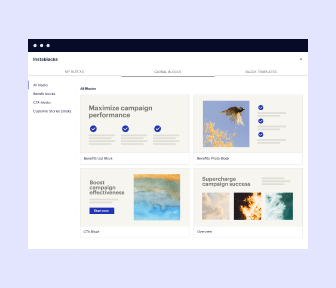
Easier page building without coding
Instapage offers a flexible and seamless page creation experience with a library of 500+ conversion-focused layouts, Instablocks®, a drag-and-drop builder, and AI content generation. With technologies like Thor Render Engine®, you can create on-brand, mobile-responsive landing pages that load quickly and start converting during initial visitor clicks.
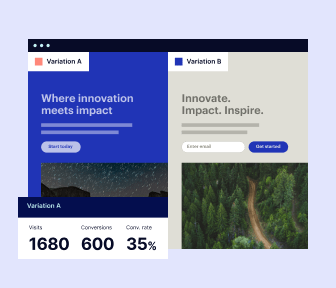
More insights — better results
Instapage lets you see in detail how each landing page experience and variation is performing so you can make targeted changes that boost page conversions. Use heatmaps for a better understanding of on-page activities, run A/B tests and AI-assisted experiments, and then track and evaluate results within robust analytics dashboards.
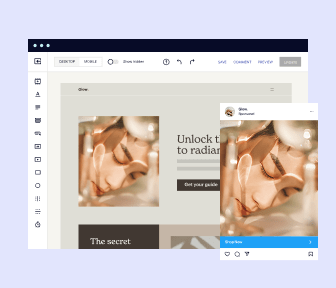
More personalized experiences
Instapage lets you quickly create high-performing landing pages tailored to each of your ad campaigns. Deliver personalized experiences for distinct audiences using dynamic text replacement. Effortlessly align specific advertisements to unique pages with AdMaps. Monitor audience-level metrics using our advanced data tools.
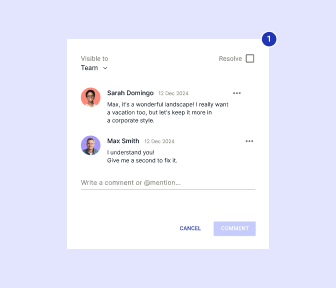
Built-in collaboration
Instapage collaboration capabilities bring your entire team together to speed up the process of landing page review, approval, and launch. No more frustrating and unnecessary revisions or edits scattered across emails. Provide instant feedback, conduct real-time page edits, and securely share your pages with outside stakeholders.
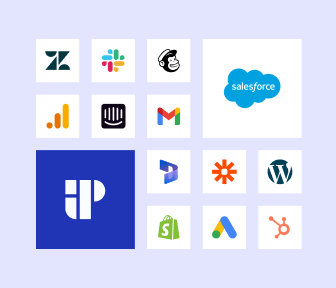
Free up time for your business
Invest time into business growth, not busy work. Launch landing pages faster with reusable forms and templates. Build once, reuse forever.
Explore all integrations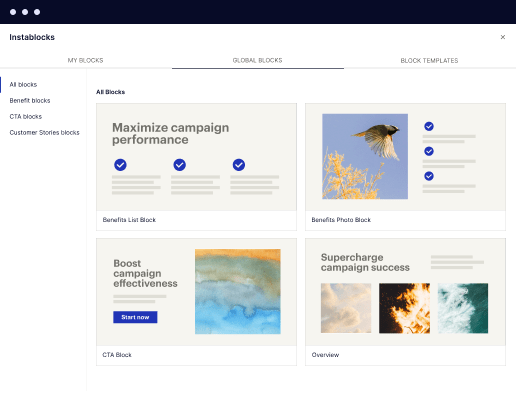
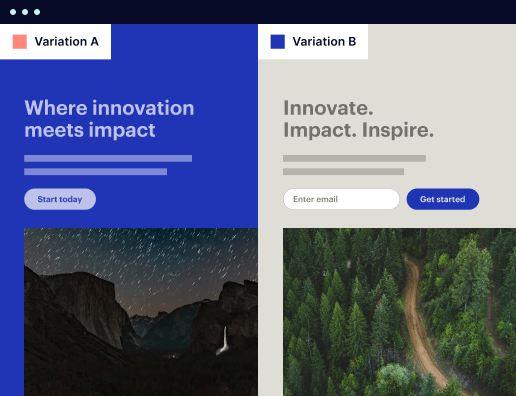
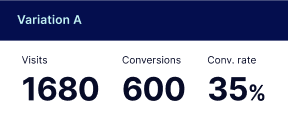
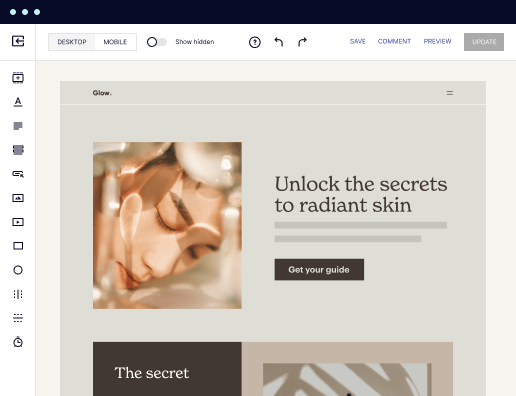

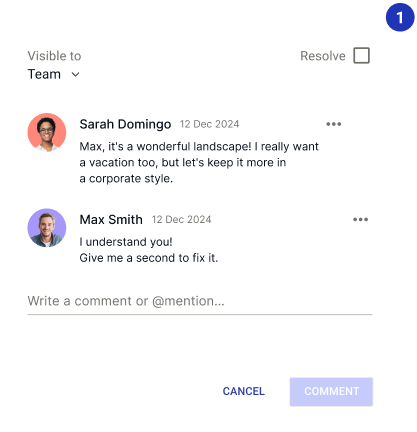
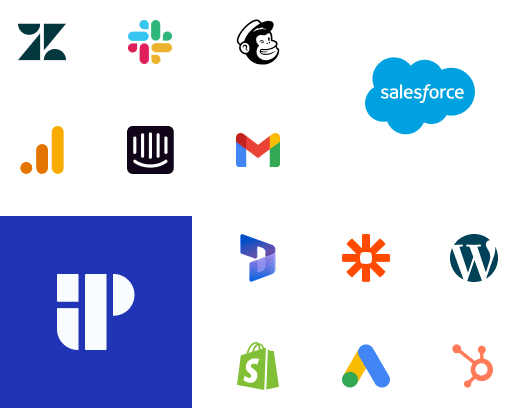
Easier page building without coding
Instapage offers a flexible and seamless page creation experience with a library of 500+ conversion-focused layouts, Instablocks®, a drag-and-drop builder, and AI content generation. With technologies like Thor Render Engine®, you can create on-brand, mobile-responsive landing pages that load quickly and start converting during initial visitor clicks.
More insights — better results
Instapage lets you see in detail how each landing page experience and variation is performing so you can make targeted changes that boost page conversions. Use heatmaps for a better understanding of on-page activities, run A/B tests and AI-assisted experiments, and then track and evaluate results within robust analytics dashboards.
More personalized experiences
Instapage lets you quickly create high-performing landing pages tailored to each of your ad campaigns. Deliver personalized experiences for distinct audiences using dynamic text replacement. Effortlessly align specific advertisements to unique pages with AdMaps. Monitor audience-level metrics using our advanced data tools.
Built-in collaboration
Instapage collaboration capabilities bring your entire team together to speed up the process of landing page review, approval, and launch. No more frustrating and unnecessary revisions or edits scattered across emails. Provide instant feedback, conduct real-time page edits, and securely share your pages with outside stakeholders.
Free up time for your business
Invest time into business growth, not busy work. Launch landing pages faster with reusable forms and templates. Build once, reuse forever.
Explore all integrationsGet started with Instapage in a few steps
-
Create your Instapage account
Start with Instapage by signing up via Google or your email. You'll get access to a free 14-day trial to discover Instapage capabilities. Feel free to cancel anytime during the 14-day trial if you decide that our product is not suitable for your business. -
Build and personalize your page
Create your first landing page from scratch or choose a template from 500+ customizable layouts. Use the drag-and-drop builder to add page elements, fonts, and backgrounds, refine content with AI, or add custom HTML, Javascript, and CSS. -
Review and make edits
Collaborate on page designs and streamline review processes. Invite your team members and stakeholders to review, edit, and provide feedback on your landing page. Collaborate knowing your page is confidential and only accessible to authorized users. -
Publish and track page performance
Publish your page to a domain or custom URL. Connect your pages to the ads you've created and track page performance within the analytics dashboard, run A/B tests and AI experiments, analyze results, and continuously optimize your landing page to maintain high conversions.
Mailchimp vs. Zoho: The Ultimate Clash of Titans
As the digital marketing landscape expands, businesses find themselves at a crossroads when choosing the right tool for their marketing needs. Among the heavyweights in this domain are Mailchimp and Zoho, both of which offer a plethora of features aimed at enhancing email marketing and automation strategies. But how do they stack up against each other? And what about Instapage, quietly standing in the corner, ready to enter the ring? Let’s dissect the similarities and differences among these platforms, ensuring you make an informed choice for your marketing arsenal. In the realm of digital marketing, where competition is fierce, making a strategic choice is paramount. Businesses seek partners that will not just streamline their processes but also genuinely amplify their reach. With a focus on user-friendliness, efficiency, and results, these platforms vie for attention, each boasting its own unique flair. So, buckle up as we embark on this journey to discover who truly reigns supreme.
Introducing the Contenders
In one corner, we have Mailchimp, known for its intuitive design and a vast range of templates that cater to all sorts of marketing needs. This platform comes with a rich history, built on the foundation of email marketing, and has evolved into a versatile tool offering numerous integrations. It stands out with its user-friendly interface, making it easy for beginners to dive into email campaigns without feeling overwhelmed. On the other side, we have Zoho, a powerhouse that provides an extensive suite of business applications including CRM, project management, and, of course, email marketing. What sets Zoho apart is its ability to integrate seamlessly with its suite of tools, providing a one-stop-shop for businesses looking to streamline their operations. Both platforms have their strong suits, but which one will prove more effective for your journey? Let the showdown begin.
Feature Face-off: Who Packs the Better Punch?
When it comes to features, both Mailchimp and Zoho have much to offer. Mailchimp shines with its advanced segmentation capabilities, allowing users to target specific audiences with personalized messages. The platform’s automation tools are also top-notch, enabling marketers to set up workflows that engage subscribers at the right moments. On the flip side, Zoho offers robust email marketing features integrated with its CRM, empowering users with valuable insights into customer behaviors and preferences. While both platforms appear to pull their weight, there’s always a highlight reel of features warming up backstage – and that’s where Instapage comes in, waiting to dazzle with its landing page optimization capabilities. But we’ll address that later; for now, let’s focus on the direct contenders.
Usability Uncovered: Which is More User-Friendly?
Usability is paramount when selecting an email marketing platform, especially for those just starting out. Mailchimp aims to keep things accessible, offering an intuitive interface that guides users through the process of creating campaigns. Beginners can quickly learn the ropes, while experienced marketers can dive into advanced features without stumbling. In contrast, Zoho’s platform caters more heavily to users who thrive on integration and CRM capabilities. For those comfortable with technology, Zoho is a goldmine, but the learning curve may not be as smooth for novices. Picture learning Hawaiian dancing versus a steady-paced salsa; both are enjoyable, but the ease differs greatly. Whichever you lean towards, each platform has its way of making the journey smoother. Now, let's list out the standout features of each platform.
Mailchimp Standout Features:
- Advanced Segmentation for targeted marketing.
- Robust Automation workflows for seamless campaign management.
- Extensive Template Library to spark creativity.
- In-depth Reporting and Analytics to track campaign performance.
- User-friendly Drag-and-drop Email Builder for easy design.
Zoho Key Features:
- Seamless Integration with Zoho’s CRM suite.
- Advanced Analytics for insightful customer behavior tracking.
- Customization options to tailor email campaigns.
- Multi-channel Marketing capabilities including social media and SMS.
Common Strengths Shared by Both Platforms:
- Responsive Email Templates for mobile and desktop.
- Analytics and Reporting to gauge performance.
- Automation capabilities to engage customers effectively.
- Integration with various third-party applications.
- List Segmentation for tailored marketing efforts.
- GDPR compliance to ensure legal marketing practices.
With both contenders displaying formidable features, the final moments of the round leave us tantalized about who reigns supreme. Yet, as if scripted, Instapage is patiently waiting in the back, ready to swoop in with landing page solutions that could enhance any campaign from either opponent. The battle continues, but the real winner may just be the smart marketers who recognize the strengths of each.
Performance Match-Up: Speed and Responsiveness
In today’s fast-paced digital environment, performance can make or break a marketing campaign. Mailchimp typically boasts fast loading times, a significant advantage when users are eager to engage with their emails. Slow-loading pages akin to molasses in winter can frustrate recipients, causing potential losses in engagement. Fortunately, Mailchimp’s infrastructure seems to support speedy experiences. On the other hand, Zoho also prioritizes performance but integrating with its broader application suite can sometimes result in slightly longer loading times, particularly in high-volume scenarios. However, when speed issues arise, the comprehensive tools they offer usually make the trade-off worth it. Whether users are more inclined towards the agility of Mailchimp or the comprehensive nature of Zoho’s performance, both have their perks in the grand marketing scheme.
Supporting Teams and Resources: Who Has Your Back?
Solid support can turn a basic platform into a critical ally during complex campaigns. Mailchimp provides extensive documentation, helpful tutorials, and a robust community forum for users to tap into. Anyone seeking assistance is met with a treasure trove of resources, ensuring a smoother journey. In contrast, Zoho extends its support system with personalized assistance options, particularly for businesses using multiple tools within their ecosystem. With both platforms offering reputable support channels, marketers can rest assured knowing they have a guide through any technical snafu that might arise in this digital expedition.
Pricing Fiesta: A Breakdown of Costs
Mailchimp's Price Structure Benefits:
- Free tier available for beginners to get started.
- Pay-as-you-go plans for occasional users.
- Competitive pricing with growth potential as businesses expand.
- Comprehensive features offered at different pricing levels.
Zoho's Competitive Pricing Advantages:
- Affordable pricing structure ideal for small to medium businesses.
- Flexible plans tailored to specific needs.
- Free trials available to test the platform before purchasing.
- Discount options for annual subscriptions.
As we dig into their pricing strategies, it becomes clear that each platform stands out for various reasons. Mailchimp's free tier is a big draw for newcomers, while Zoho’s affordability allows companies on tighter budgets to access essential marketing tools. Yet amidst this pricing duel, one must consider Instapage's pricing strategy, which proves flexible and scalable – offering outstanding value, especially for landing pages. It’s a clear contender in this arena.
Moving beyond mere numbers, a transparent look at these plans reveals the significance of getting what you pay for. Sometimes, these hidden gems or frustrating snares lurk in lesser-known features wrapped up in marketing lingo. Thus, being informed about what you’re investing in is crucial.
And Then There's Instapage...
As we draw this comparison to a close, one cannot overlook Instapage, which stands ready to leap into action, showcasing its specialized focus on landing pages that drive conversions. With an array of customizable options and powerful analytics tools, it offers businesses a way to enhance their marketing efforts uniquely. Instapage allows for seamless integrations with both Mailchimp and Zoho, creating a formidable triad that can elevate any marketing strategy. Businesses often find that while both Mailchimp and Zoho serve their purposes, it’s the precision-targeted solutions offered by Instapage that can take their campaigns to new heights. What appears to be a simple tool can often reveal the layers of optimization needed to truly resonate within the marketing landscape. Let’s not just juggle endless tools; let’s focus on finding those who genuinely cater to our specific needs to soar.
In conclusion, navigating the world of marketing platforms doesn’t have to be burdensome. With proper research and understanding of each contender, companies can align their choices with their goals. By recognizing what each platform brings to the table, marketers can strategically position themselves for success. Don’t underestimate the impact of the right tools on your journey; thoughtfully explore options to uncover the one that fits like a glove. Allow Instapage to be the next step in enhancing your marketing arsenal.










